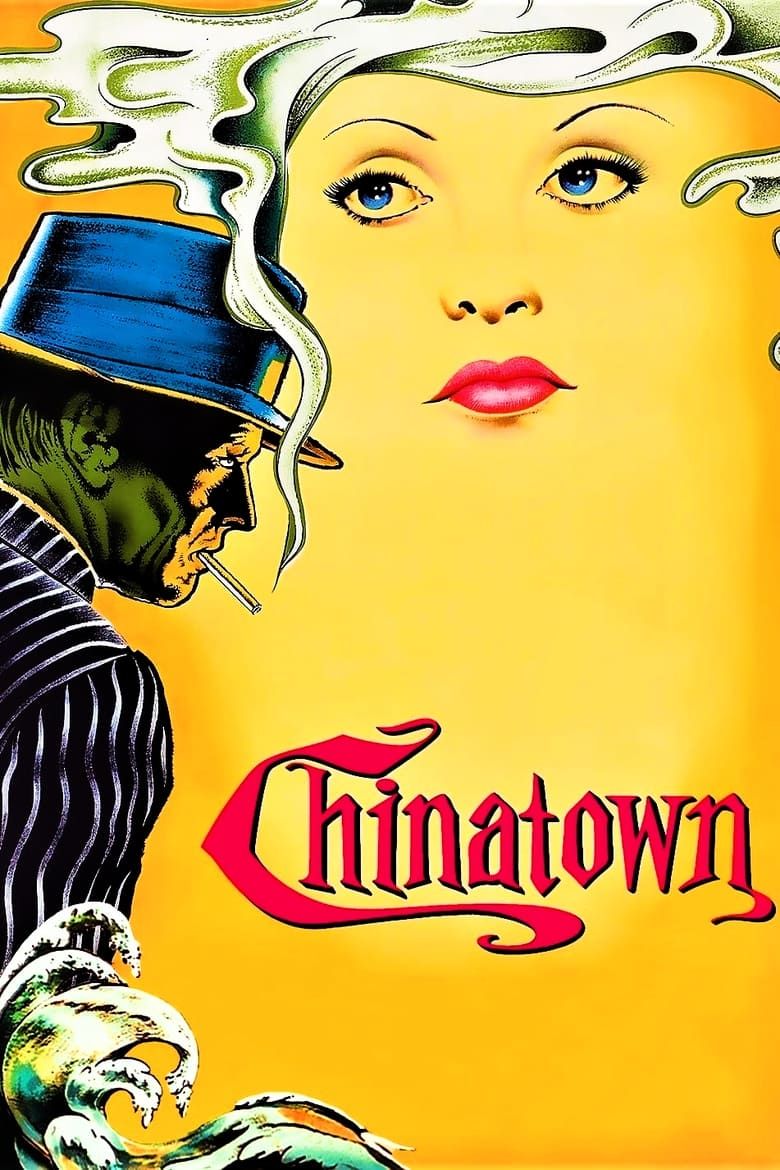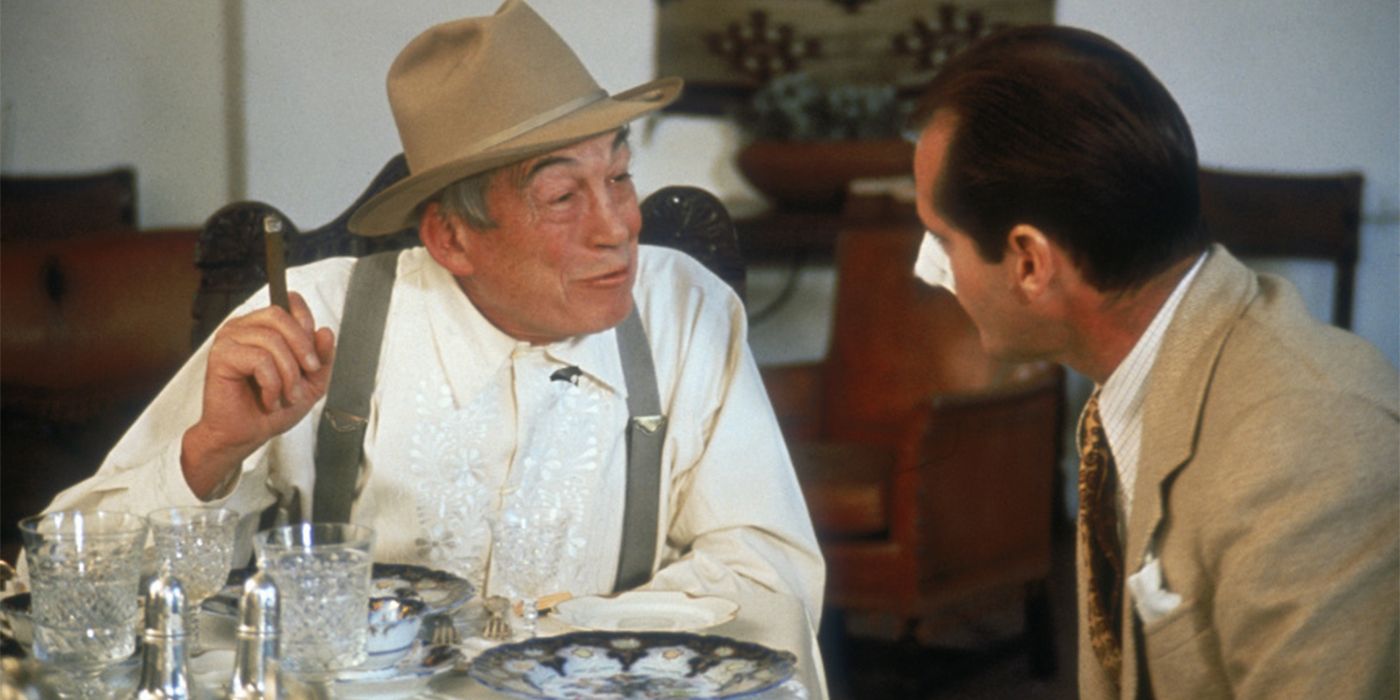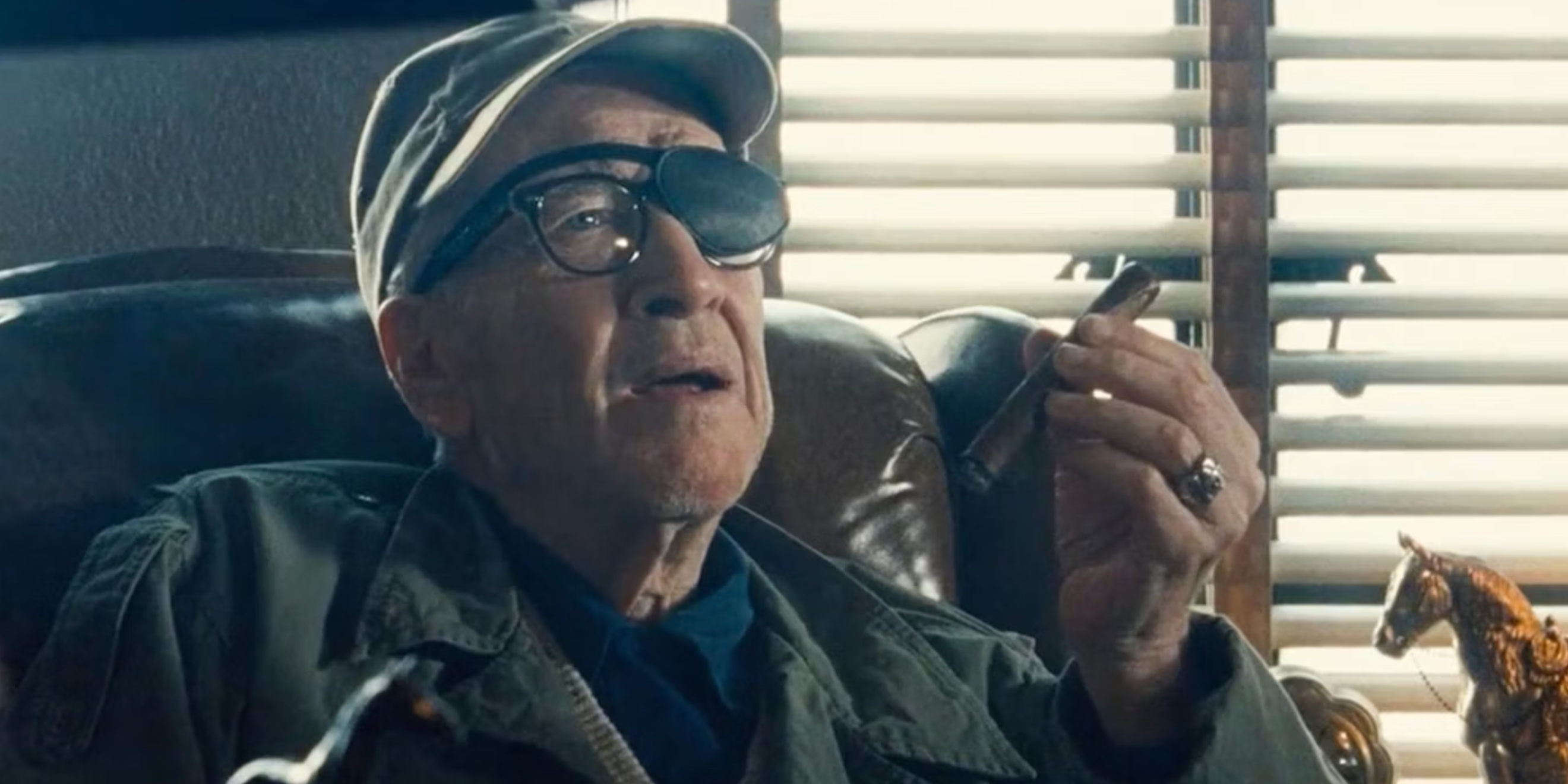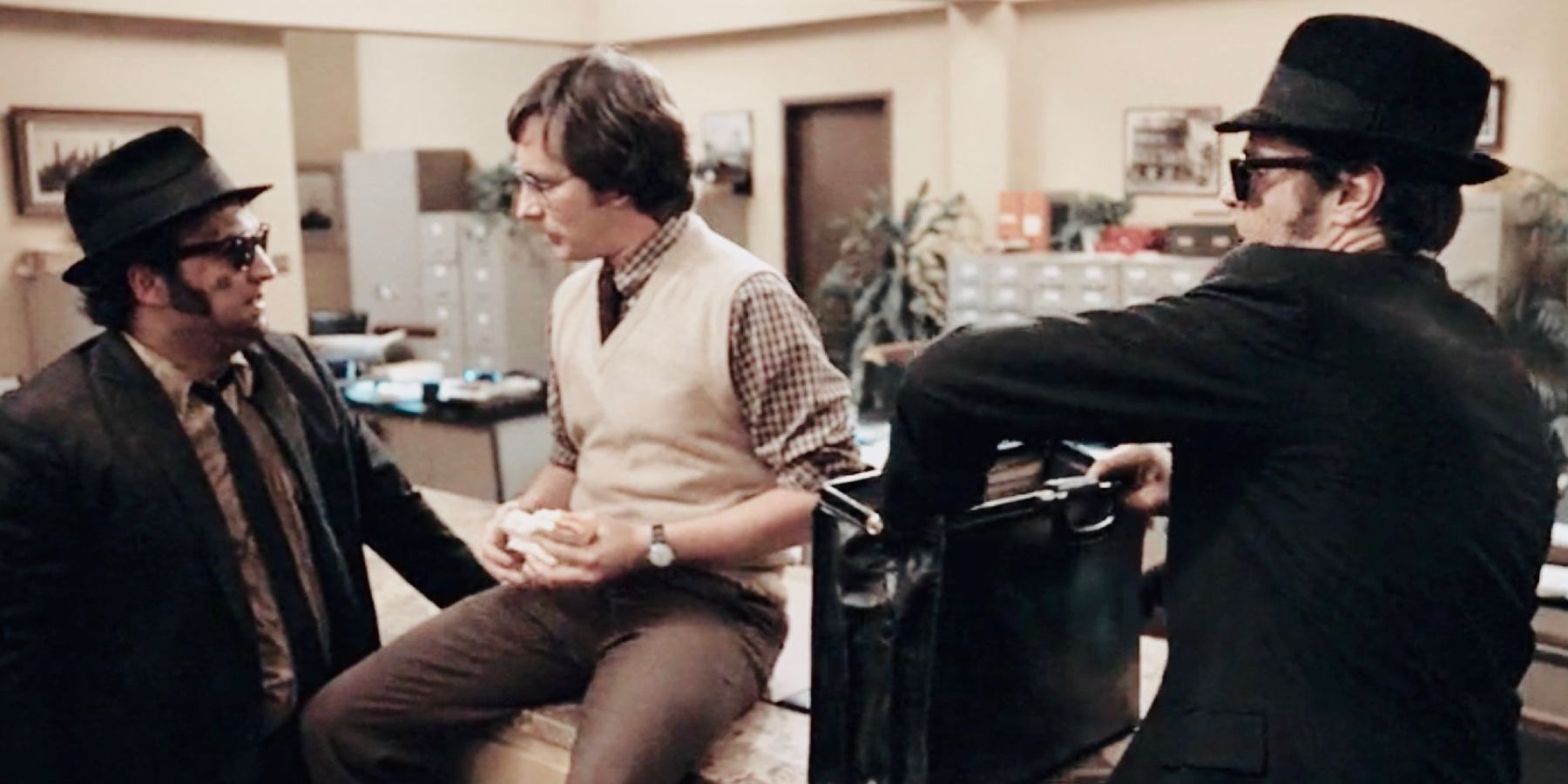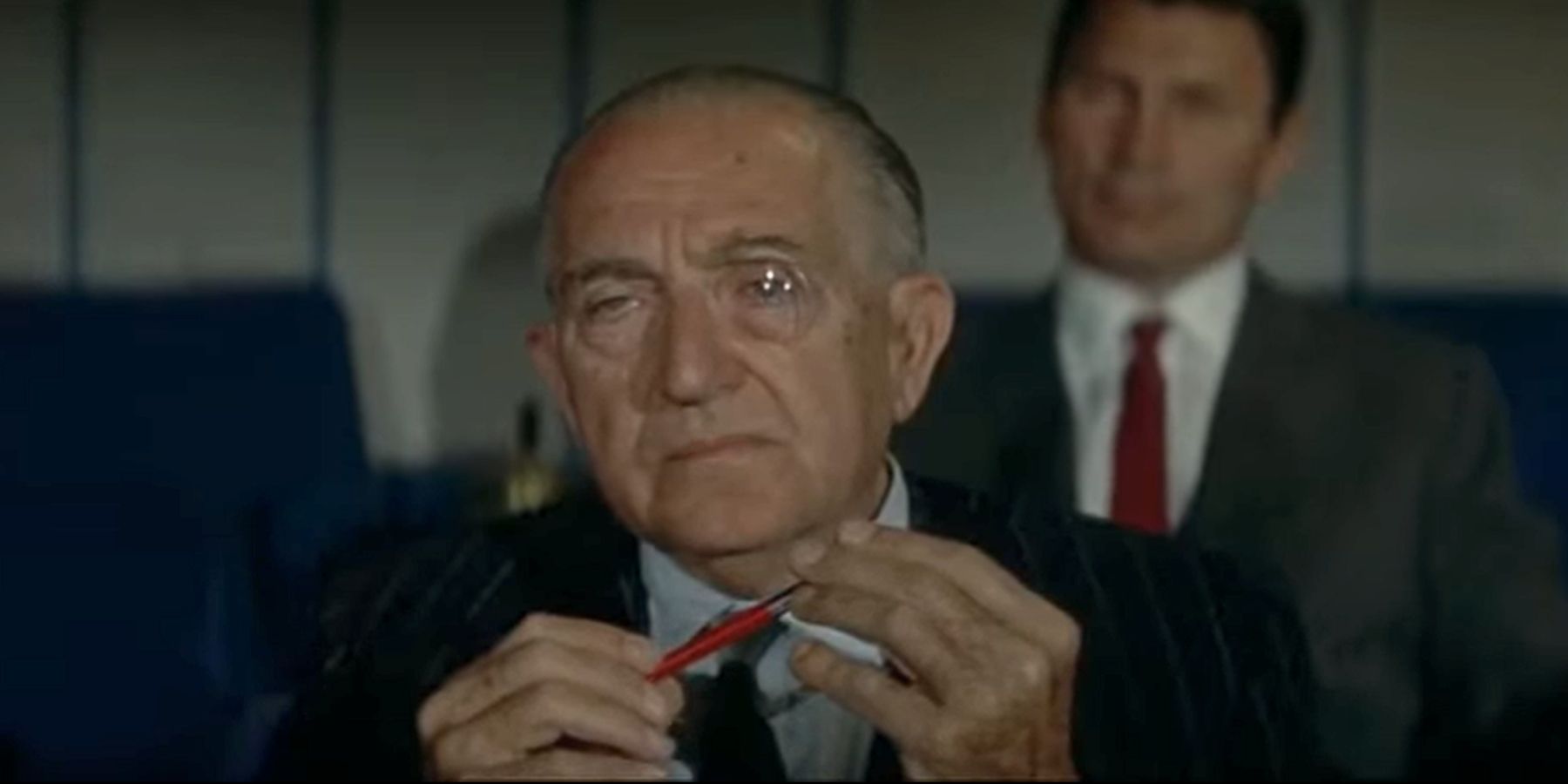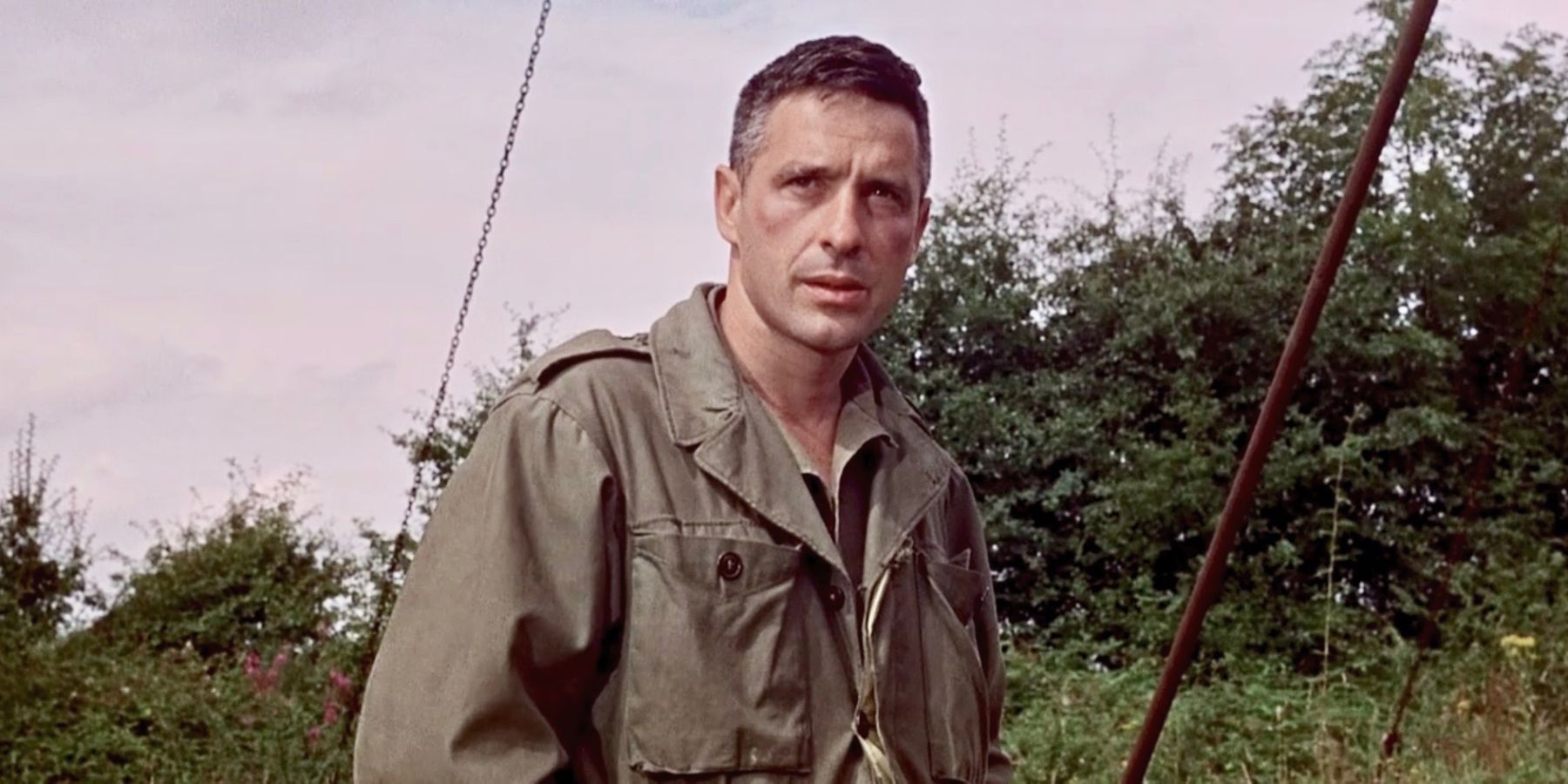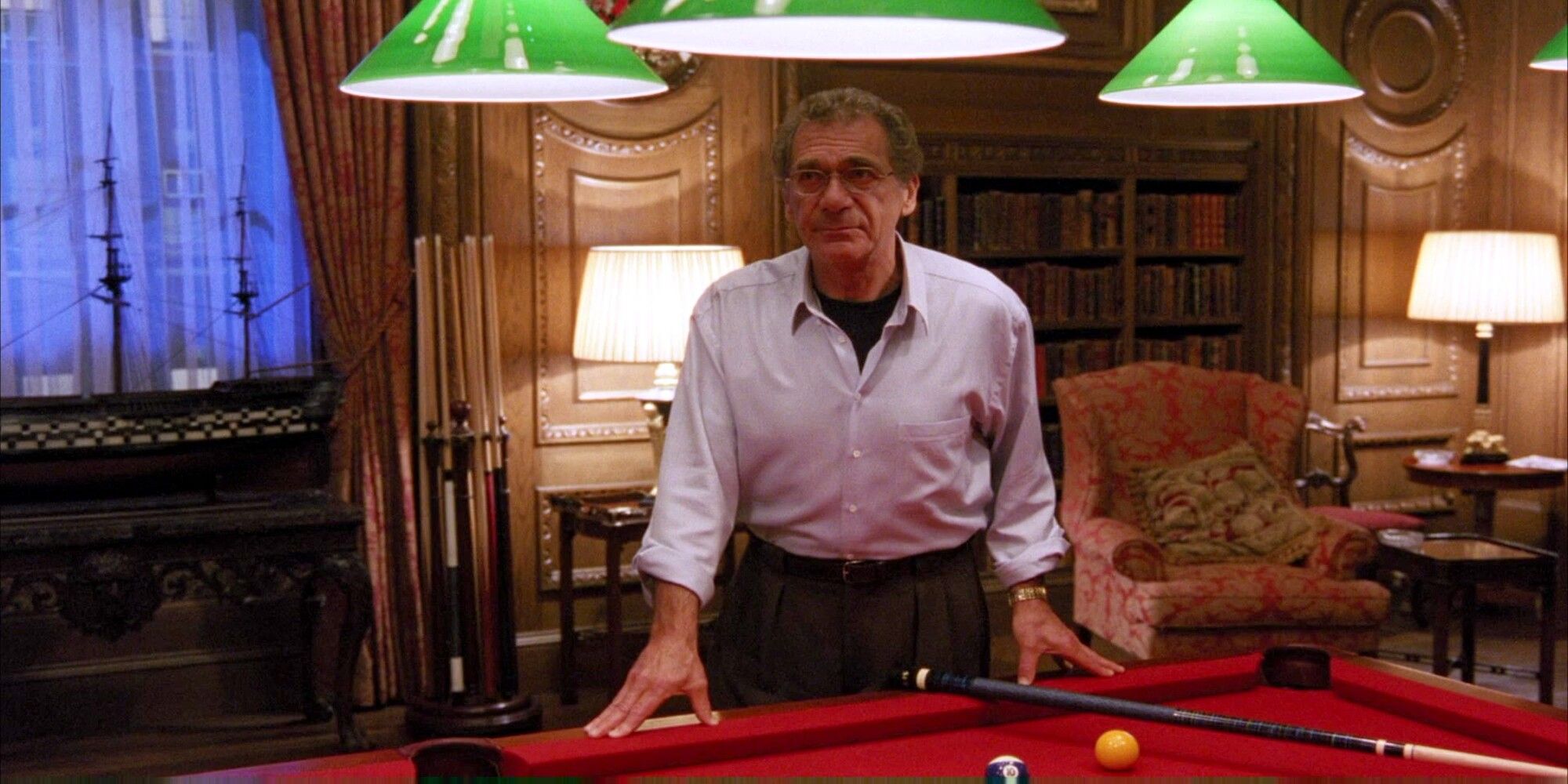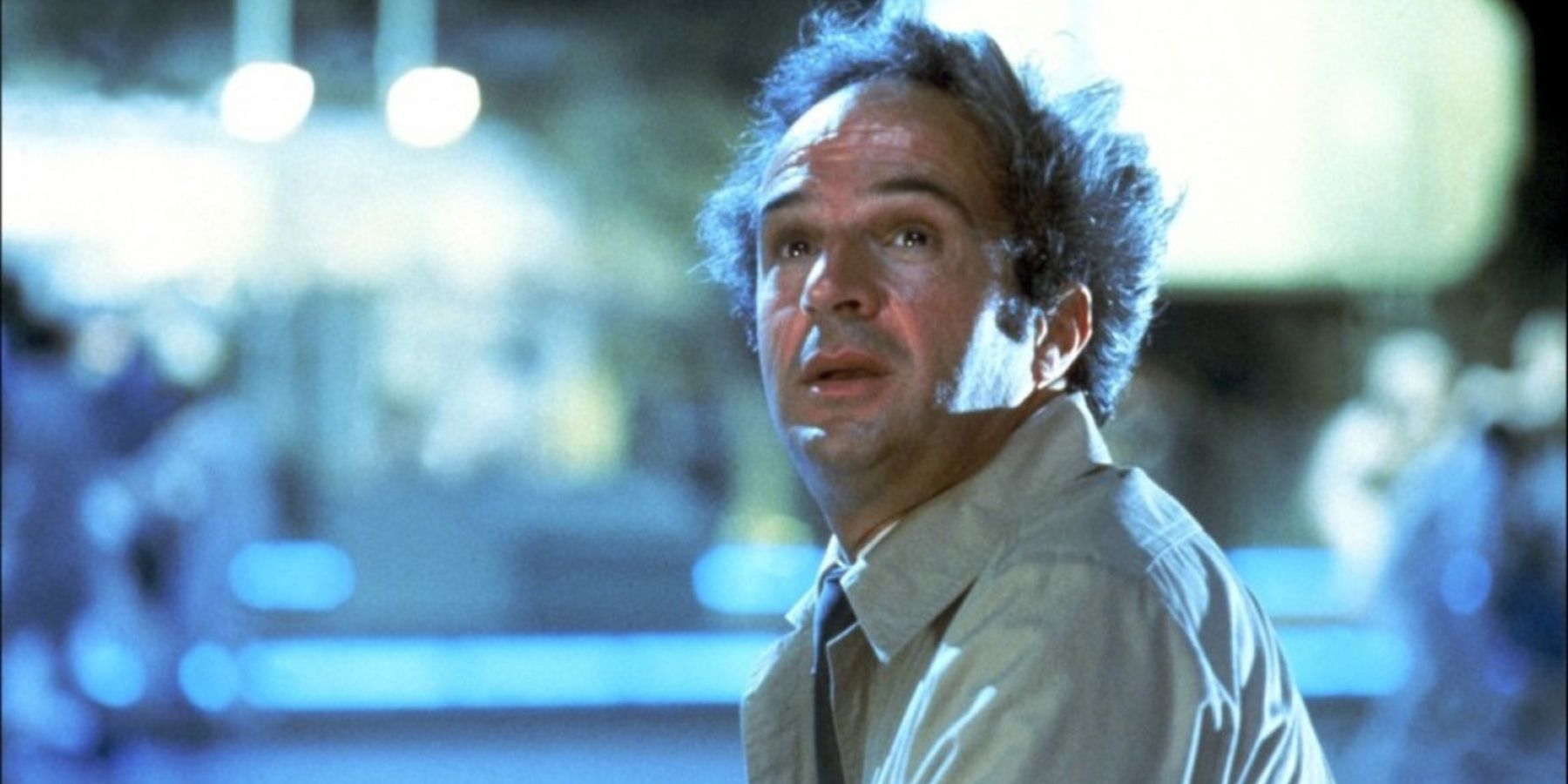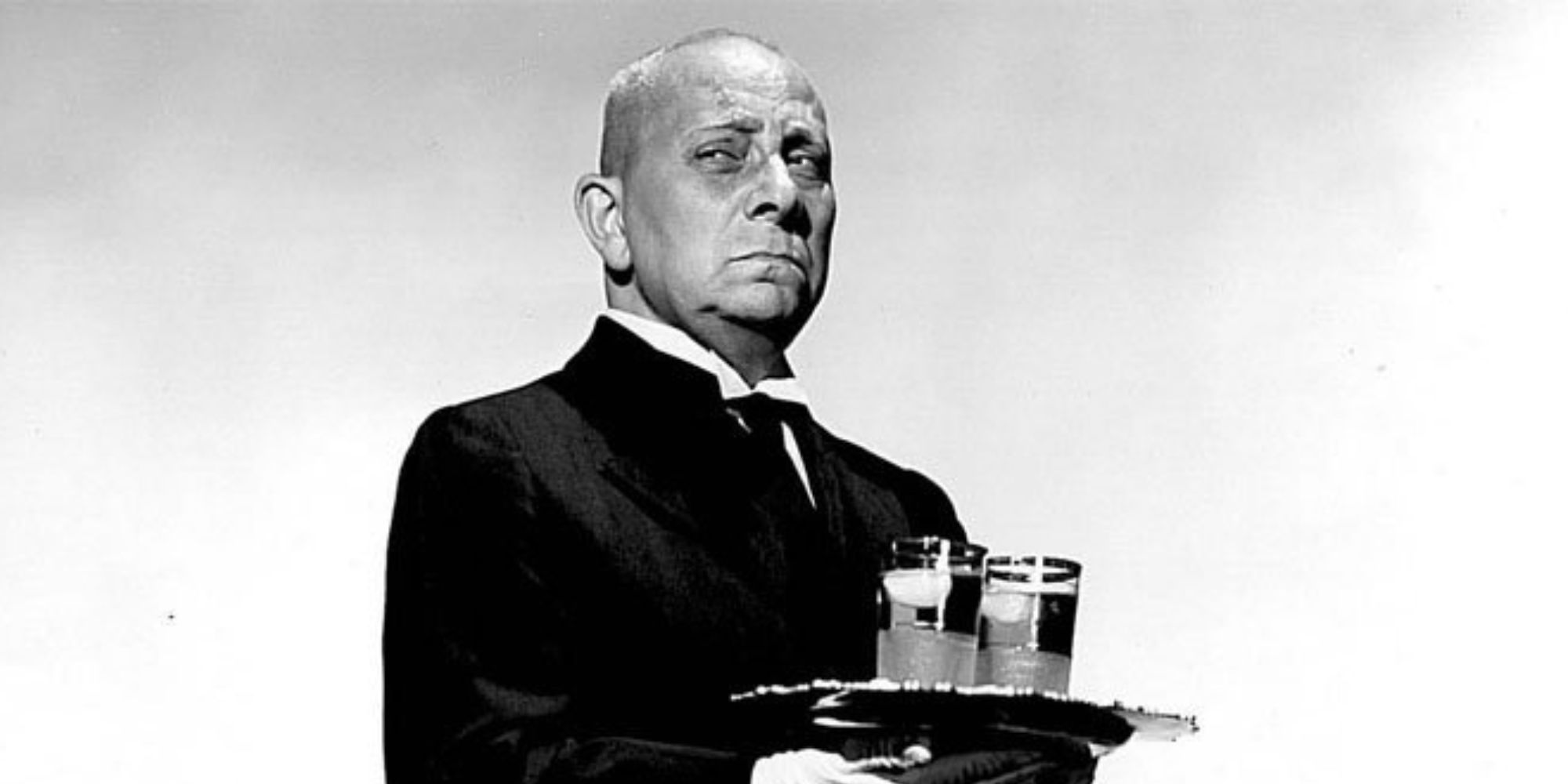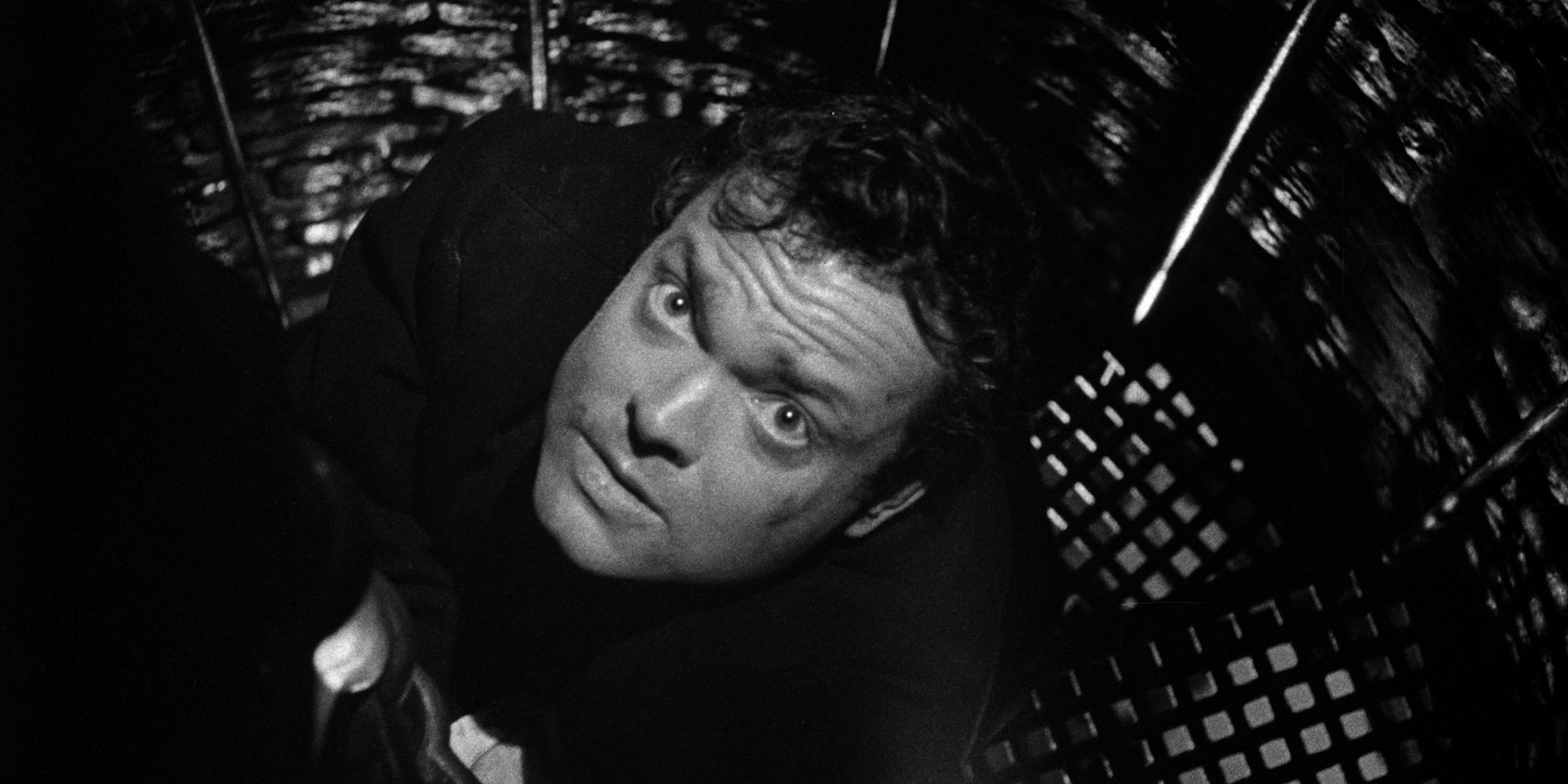Directors can act, and actors can direct; this is no secret. For the latter, look at how people like George Clooney, Robert Redford, or Clint Eastwood started out as actors, and then found a knack for directing, but then still continued to act. And then there are directors who often like to act in the movies they make. Most would argue that someone like Woody Allen generally does so effectively, while others might want to argue that someone like Quentin Tarantino generally does so… um… not effectively.
But as for directors appearing in movies they didn’t direct? That’s a little less common, and it’s those directors – and the roles they had – that the following wants to draw attention to. In each case, the person acting here is more well-known as a director than an actor, and they’re appearing in a movie they didn’t either direct or co-direct. Also, most of these will be supporting roles, with some extended cameos included if they were memorable or novel enough.
10
‘Dreams’ (1990)
Martin Scorsese playing Vincent van Gogh
In the final decade of his life, Akira Kurosawa made one of his best and most personal movies: Dreams. This one was as visually grand and colorful as Ran, but had far less of an emphasis on narrative. Really, it was several vignettes in one, and each was said to be based on a dream that the legendary Japanese filmmaker had at some point in his life.
One of these dreams brought to the big screen involved an art student traveling through a world of Vincent van Gogh artworks, before running into the man himself. Which sounds interesting enough, but here, van Gogh was also played by the legendary Martin Scorsese. And he’s pretty good in an admittedly small role, and it’s also just undeniably cool to see worlds collide, in effect; a collaboration between perhaps the greatest Japanese filmmaker of all time and one of the very best American filmmakers of all time, too.
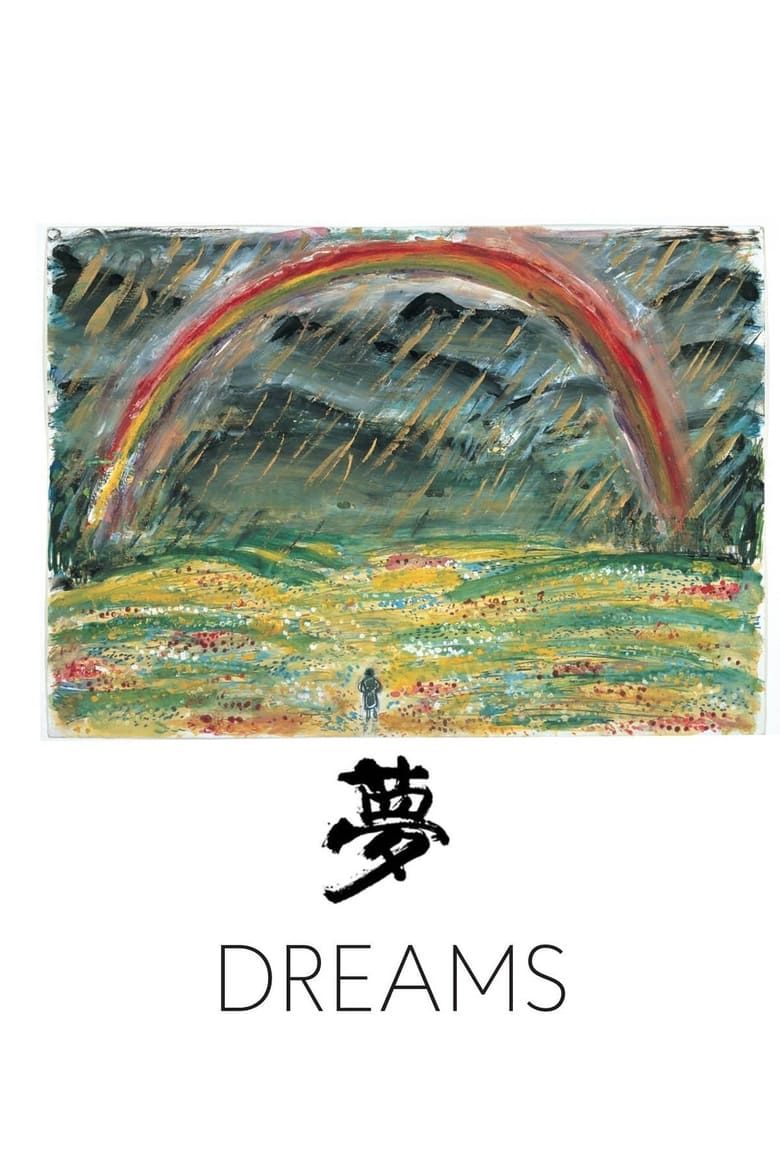
9
‘The Fabelmans’ (2022)
David Lynch playing John Ford
Steven Spielberg has never been shy about showing the sorts of great directors he’s taken inspiration from, and The Fabelmans does so even more explicitly by being a semi-autobiographical movie about Spielberg’s life as a kid and teenager. The main character is named Sammy, instead of Steven or Steve, but he has to deal with his parents separating, drama at school, and the all-consuming desire to create something great, when he realizes how much he cares about filmmaking.
The Fabelmans handles all this very tenderly, and it saves one of the best scenes for the very end: a meeting between Sammy and the legendary John Ford, who’s played here by the also legendary David Lynch. It’s such a great note for the film to end on, and Lynch absolutely steals the one scene he’s in. And, all in one, Spielberg got to reference his own upbringing and effectively pay tribute to both Ford and Lynch, all minutes before the end credits rolled.
8
‘The Blues Brothers’ (1980)
Steven Spielberg playing Cook County Assessor’s Office Clerk
Speaking of Steven Spielberg, he had a very small role at the very end of the chaotic cult classic that is The Blues Brothers. This was likely a nod to the fact that he had directed both Dan Aykroyd and John Belushi a year earlier in the technically impressive (though largely unpopular) 1941. In The Blues Brothers, he’s kind of the final person they have to encounter to fulfill their mission from God.
Honestly, Spielberg is so young here that he’s hard to recognize, but it’s a funny cameo of sorts once you do. Also, if this example isn’t good enough, then The Blues Brothers also has an honorable mention of sorts: Frank Oz gets what might be the first laugh of the movie in the film’s opening sequence, playing a corrections officer (and Oz, though known for his work with The Muppets and Star Wars, is himself an accomplished filmmaker, having directed movies like Little Shop of Horrors, Dirty Rotten Scoundrels, and Bowfinger).
7
‘Contempt’ (1963)
Fritz Lang playing himself
If you’ve seen anything by Jean-Luc Godard, you’re probably well aware of how much he likes to break apart (or entirely annihilate) cinematic conventions, perhaps depending on which era of his you choose to explore. Fairly early in his career, he made a film called Contempt, which is one of his better efforts, and also stands as one of those key films about making films, with lots of self-reflection and jabs at certain industry conventions.
Fritz Lang in Contempt does technically appear as a version of himself, but it still feels like a performance, given this version of the director is making a film adaptation of The Odyssey, which Lang never did in real life.
Now, Fritz Lang in this movie does technically appear as a version of himself, but it still feels like a performance, given the Lang in this movie is directing a film adaptation of The Odyssey, which the real-life Lang never directed. So, he gets to play a fictionalized version of himself, and is very good at it (also, Godard rather cheekily plays this Lang’s assistant director). Whether a Fritz Lang version of The Odyssey could’ve ever been as good – or better – than the one Christopher Nolan’s making? Who knows.
6
‘The Dirty Dozen’ (1967)
John Cassavetes playing Victor R. Franko
There are quite a few characters in The Dirty Dozen, as you might’ve guessed from the title. It’s about 12 prisoners being assigned a very dangerous mission during World War II. They’re told that if they can succeed in said mission, the sentences for their crimes will be either reduced or removed, and so a group of violent, chaotic, and cutthroat men do indeed band together and begin preparing for that mission at hand.
The entire cast is strong, but for present purposes, it’s worth highlighting John Cassavetes as one of the dozen. He was quite a good actor (see also Rosemary’s Baby), but might well be more well-recognized for his groundbreaking and arguably still ahead-of-their-time dramas, like A Woman Under the Influence (1974) and The Killing of a Chinese Bookie (1976).
5
‘Eyes Wide Shut’ (1999)
Sydney Pollack playing Victor Ziegler
Eyes Wide Shut has a lot going on technically and thematically, even if the narrative seems – at least at first – pretty simple, and the number of significant characters is low. Tom Cruise’s character, a doctor, is at the center of a surreal series of events, perhaps a dream, perhaps a conspiracy, perhaps a bit of both… and things spiral out of control for him, with a patient of his (played by Sidney Pollack) confirming some of that, to some extent, by the film’s end.
Pollack’s initially a fairly warm and grounded character, but his final scene with Cruise flips things around, and though it’s not as terrifying as some of the stuff that came before, the conversation is still quietly menacing. As it turns out, Sidney Pollack is also as good an actor as he was a director, and that’s really saying something, considering his directorial body of work includes titles like They Shoot Horses, Don’t They? (1969), Tootsie (1982), and Jeremiah Johnson (1972).
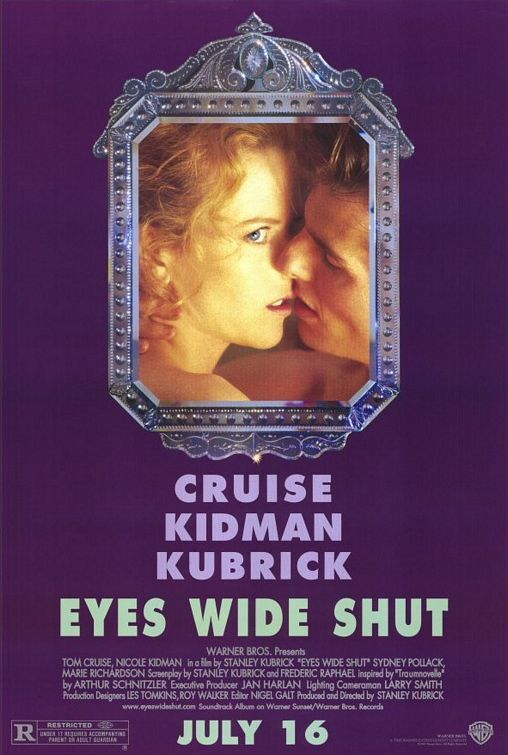
- Release Date
-
July 16, 1999
- Runtime
-
159 minutes
- Director
-
Stanley Kubrick
- Writers
-
Stanley Kubrick, Frederic Raphael
4
‘Close Encounters of the Third Kind’ (1977)
François Truffaut playing Claude Lacombe
Decades before Steven Spielberg directed David Lynch in The Fabelmans, he also directed one of the all-time great French filmmakers in the classic sci-fi film Close Encounters of the Third Kind. That director was François Truffaut, and his most noteworthy movies, as a filmmaker, include the likes of The 400 Blows, Jules and Jim, and Day for Night.
Truffaut has a surprisingly important role in Close Encounters of the Third Kind, playing a government scientist who was caught up in the whole “aliens coming to Earth” thing, and being especially pivotal in the film’s memorable final sequence. François Truffaut scarcely acted outside this movie, instead being most focused on writing and directing (largely great) films, but if Close Encounters of the Third Kind was anything to go by, he was also pretty damn good at acting.
3
‘Sunset Boulevard’ (1950)
Erich von Stroheim playing Max von Mayerling
As was the case with the aforementioned Contempt, Sunset Boulevard is a movie that looks behind the scenes at the business of filmmaking, doing so in a darkly funny and very much downbeat way. Its story concerns an actress who wants to make a comeback, even though her silent films were what made her a star, and Sunset Boulevard, being self-referential, has plenty of people known for their work in silent cinema appearing here.
Granted, Gloria Swanson does not play herself here, and her path in life did indeed differ greatly from that of her character, Norma Desmond. Meanwhile, director Cecil B. DeMille gets to cameo as himself, and Buster Keaton appears very briefly as a bridge player (and also, perhaps, himself). But it’s director Erich von Stroheim who gets the biggest role to play of all the silent film directors here, as he was known for making Greed (1924) and Queen Kelly (1932) (the latter of which starred the real-life Swanson), and he also gives a genuinely great performance here as Max von Mayerling, the butler of Norma Desmond.
2
‘The Third Man’ (1949)
Orson Welles playing Harry Lime
This is a bit of a tricky example, since Orson Welles was about as accomplished an actor as he was a director. This all stems from Citizen Kane, which is considered one of the best-directed and best-acted movies of its era, or maybe even of all time. And, what do you know? Welles directed that film, and he also played the lead character, doing remarkable work on both fronts.
There were films he directed that he didn’t star in, and so too were there movies that were directed by others that he did star in, as The Third Man shows. This is a visually stunning and mind-bending mystery/thriller film where describing what Welles does would constitute some kind of spoiler. So, all you need to know is that when he is in this movie, he’s great, and it’s probably the best performance he gave in a movie he didn’t direct.
1
‘Chinatown’ (1974)
John Huston playing Noah Cross
As a throwback to film noir of old that, at the same time, wanted to make things even darker and more cynical than expected, Chinatown is an overwhelmingly bleak film. It’s engaging as a mystery story and certainly looks striking, so you can’t call it boring and miserable by any means, but yeah, it does take something out of you emotionally, and by design.
The casting here is clever, too, as John Huston, who was best known for forwarding the film noir genre as a whole (he directed The Maltese Falcon, The Asphalt Jungle, and Key Largo, for example), ends up playing the main villain in Chinatown. He directed a great many dark and morally complex movies, and then, in the seminal neo-noir that is Chinatown, he gets to still be in control, in effect, of the negative forces that drive such stories. Or that’s reading into it too much. Or it’s not reading into it enough. Ah, forget it, Jake. It’s…
